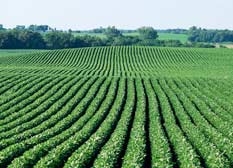The role of agribusiness in the food system is perhaps one of the most important relationships that there is on the planet. Agribusiness is a broad term that combines all those who play a part in the production and sale of food and drink products. Everything from the seed producers to the retail outlets and restaurants that sell the final product falls within the criteria of “agribusiness”. Companies in the agribusiness chain include globally prominent multi-billion dollar companies such as Monsanto, Archer Daniels Midland, PepsiCo, and Nestle as well as tens of thousands of much smaller businesses. These companies make up the control agribusiness and play a leading role in our world food system.
Agribusiness has transformed the planet in ways that are both criticized and praised. For instance, Monsanto, a multi-billion dollar seed and chemical company has introduced products and technologies that have significantly changed the landscape of agriculture. In 2009 Monsanto was ranked as the company of the year by Forbes magazine but since then the world's perception of them has reached rock bottom due to their GM products that are banned in the EU for health concerns and for their chemical products that are polluting our planet.
Agribusiness has transformed the planet in ways that are both criticized and praised. For instance, Monsanto, a multi-billion dollar seed and chemical company has introduced products and technologies that have significantly changed the landscape of agriculture. In 2009 Monsanto was ranked as the company of the year by Forbes magazine but since then the world's perception of them has reached rock bottom due to their GM products that are banned in the EU for health concerns and for their chemical products that are polluting our planet.
The days of agriculture being the largest sector of employment for Americans are long gone, as are the days of small, self-sustaining family farming practices. Food systems, now mostly managed by global corporations are largely out of sight, out of mind for the average consumer in developed areas of the world. With agribusiness has come chemicals in our foods, pollution, water crisis, obesity, and a disruption to the natural processes of the world among other things. There is no question that we could not be where we are as a planet without agribusiness, it is both good and bad, unwanted but completely necessary. It is biofuels, diet and health, animal welfare, food insecurity, and so much more. As the world becomes more reliant on agribusiness the number of those who are chronically malnourished in developed countries has dropped from 34% in the 1970s to just 15% now in the 2000s. We have also seen third world countries develop their economies, a decrease in global poverty, and a better sense of food security than ever before. As the world population grows so will the importance of agribusiness as it attempts to improve supply chains, crop yields, education, and infrastructure so it can continue to feed the world.


No comments:
Post a Comment